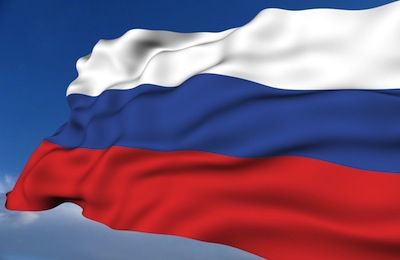In referring to an observation from President Toomas Hendrik Ilves some months ago in which he said that Russian was the language of the occupation power, Kristafovits claimed that Ilves was strictly talking about the past. But when the national Bolshevik Vladimir Ilyich Linderman (note the given name and patronymic) initiated a petition to force the government into running a referendum, he was aiming into the future.
Kristafovits spent some days in Riga just before the referendum and was shocked with the ethnic hatred displayed in the Russian language press there – aimed at the Latvian government and Latvians. It surpassed even the Russian language press just before the relocation of the ‘bronze soldier' in Tallinn in 2007. The Russian language media in the Baltics are in total chauvinistic consensus on these issues. Estonian media labeled anyone who didn't want to see the Soviet monument at Tõnismäe a fascist, with no exceptions. Latvian ministers were drawn in Nazi uniforms on newspaper front pages.
In Latvia, as expected, the most hysterical rage was aimed at those Russians who dared to defend the Latvian language as the state language. Enemy number one was prominent Russian entrepreneur in Latvia, Jelena Avotina-Jekateriniceva, who participated in a European Parliament seminar and ended her address by stating: “Long live sovereign and independent Latvia with its one state language!” Equally hated were human rights advocates from Russia, Valeria Novodorskaya and Konstantin Borovoi. During a visit to Latvia they stated that the demand for a referendum and the shrill media campaign was coordinated by the Russian clandestine services.
Nils Usakovs, the mayor of Riga, whose political party has an agreement with Vladimir Putin's Unified Russia openly mocked the human rights activists and crudely described Novodorskaya's physical appearance as suffering from doses of psychiatric pharmaceuticals administered during the Soviet era. (It was known that the KGB directed psychiatrists to deliberately use specific drugs on some political dissidents that would affect the patient's personality and appearance.)
Kristafovits recalls an episode in which he phoned the Byelorussian foreign ministry in Minsk to ask how to say “Welcome to Estonia” in Byelorussian to a delegation expected to arrive in Tallinn. The Byelorussian foreign ministry official didn't know but promised to find out in a few minutes.
It's apparent to many that Russians have taken their own stance on the issue of two state languages. Krstafovits stresses that “those who are vigorously propagating Russian as the second state language in Estonia and Latvia are in actuality using our mother tongue (Russian) as a weapon against our homeland (Estonia/Latvia)”. Many Russians are willing to integrate with the local culture and still retain their family language as Russian. In fact official integration schemes see this as a realistic way to avoid full assimilation, which subverts culture and identity.
The Kremlin and mayor Usakovs must see that a tantalizing success through a lingering fifth column presence has been spoiled with the aid of sincere and realistic Russians themselves.
Laas Leivat




